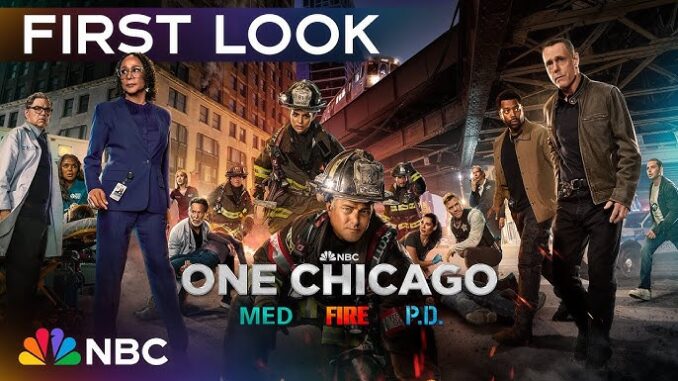
When the Sirens Fall Silent: The Void Left by Chicago’s Emergency Services
The biting Chicago wind whips through the empty streets of my imagination, a stark contrast to the usual cacophony of sirens and shouted commands. The rhythmic beep of a heart monitor fades into an unsettling silence. The once comforting blue and red flashing lights are replaced by the pale, diffused glow of streetlamps. The reason? Chicago Fire, Med, and P.D. have hit the brakes, leaving a void in the primetime landscape and a gnawing emptiness in the hearts of loyal viewers.
These shows, more than just entertainment, have become woven into the fabric of our weekly routines. They are a window into the high-stakes world of Chicago’s emergency services, offering a gritty and often heart-wrenching glimpse into the lives of the brave men and women who dedicate themselves to saving others. Firefighters battling infernos with unwavering courage, doctors making split-second decisions with life-or-death consequences, and police officers navigating the city’s complex criminal underworld – these are the narratives that have captivated audiences for years.
The absence is palpable. On Wednesday nights, the familiar thrill of seeing Engine 51 roar into action is replaced by a vague sense of displacement. The urgency of the Emergency Department, where Dr. Manning fights tirelessly to heal the sick and injured, is substituted by the mundane concerns of everyday life. And the intricate web of investigations spun by the Intelligence Unit, with Voight’s unwavering commitment to justice, leaves a vacuum filled only with reruns of lesser fare.
But the impact of this hiatus extends beyond the purely aesthetic. These shows, in their own way, have fostered a sense of community. We, the viewers, become emotionally invested in the characters’ triumphs and tragedies. We celebrate their victories, mourn their losses, and, through their fictional experiences, gain a deeper appreciation for the real-life sacrifices made by first responders. The camaraderie depicted on screen mirrors the real-world bond between firefighters, doctors, and police officers, a bond forged in the crucible of shared experiences and unwavering dedication.
Furthermore, these shows offer a valuable, albeit dramatized, perspective on societal issues. They grapple with topics like addiction, poverty, racial inequality, and mental health, often sparking conversations and raising awareness about critical challenges facing our communities. While entertainment remains the primary objective, the shows’ willingness to confront these complex issues lends them a weight and resonance that sets them apart.
So, what causes this temporary silence? The answer, invariably, lies in the complex tapestry of television production. Contract negotiations, scheduling conflicts, and the ever-present challenges of crafting compelling narratives all contribute to these pauses. Yet, knowing the reasons behind the hiatus doesn’t diminish the longing for the return of our favorite Chicago heroes.
The promise of their eventual return, signaled by the “md07” notation, is a beacon of hope in the temporary darkness. It is a reminder that this silence is only temporary, and that soon, the sirens will once again wail through the streets of our living rooms, the monitors will beep with life, and the pursuit of justice will resume.
Until then, we are left to anticipate the moment when Chicago Fire, Med, and P.D. return, ready to once again immerse us in their world of heroism, sacrifice, and the unwavering spirit of the Windy City’s finest. We wait, patient and eager, for the chance to once again witness the power and resilience of the emergency services, knowing that their absence, however temporary, only serves to amplify our appreciation for the stories they tell and the values they represent. The void is there, but so is the promise of its eventual, triumphant filling.
